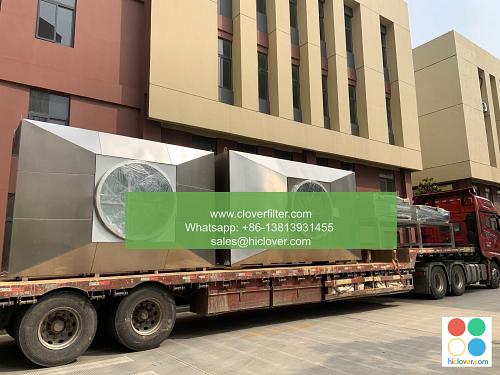The Role of Air Filter Installation in Energy Efficiency

Air filter installation plays a crucial role in maintaining energy efficiency in various applications, including residential HVAC systems, commercial buildings, and industrial processes. The primary function of an air filter is to remove airborne contaminants, such as dust, pollen, and other particles, from the air stream. By doing so, air filters help to improve indoor air quality, reduce the load on heating and cooling systems, and ultimately contribute to energy savings and sustainability.
Benefits of Air Filter Installation
The benefits of air filter installation are numerous and can be seen in various aspects of energy efficiency. Some of the key advantages include:
* Improved Indoor Air Quality (IAQ): By removing airborne pollutants, air filters help to create a healthier indoor environment, which is essential for occupant comfort and productivity.
* Reduced Energy Consumption: Air filters help to minimize the energy required for heating, ventilation, and air conditioning (HVAC) systems by reducing the load on these systems and preventing coil fouling.
* Extended Equipment Life: By preventing the buildup of dirt and debris, air filters help to extend the life of HVAC equipment, fans, and motors, resulting in cost savings and reduced maintenance costs.
* Compliance with Regulations: Air filter installation can help buildings and facilities comply with indoor air quality standards and energy efficiency regulations, such as those set by ASHRAE and LEED.
Application Areas for Air Filter Installation
Air filter installation is essential in various application areas, including:
* Residential Buildings: Air filters are used in home HVAC systems to improve indoor air quality and reduce energy consumption.
* Commercial Buildings: Air filters are used in office buildings, shopping centers, and hotels to maintain a healthy and comfortable indoor environment.
* Industrial Processes: Air filters are used in manufacturing facilities, power plants, and chemical processing plants to remove airborne contaminants and prevent equipment damage.
* Healthcare Facilities: Air filters are used in
Best Practices for Air Filter Installation
To ensure the effective installation of air filters, the following best practices should be followed:
* Regular Maintenance: Air filters should be regularly inspected and replaced to ensure optimal performance.
* Proper Sizing: Air filters should be properly sized to match the specific application and airflow requirements.
* Correct Installation: Air filters should be installed correctly to prevent air bypass and ensure optimal airflow.
* Energy-Efficient Designs: Air filters should be designed with energy efficiency in mind, using materials and technologies that minimize energy consumption and environmental impact.
Conclusion
In conclusion, air filter installation plays a vital role in maintaining energy efficiency and indoor air quality in various applications. By understanding the benefits and application areas of air filter installation, building owners and operators can take steps to improve the energy efficiency of their facilities, reduce energy consumption, and promote sustainability. By following best practices for air filter installation and maintenance, we can create healthier, more comfortable, and more energy-efficient indoor environments. Prompt

